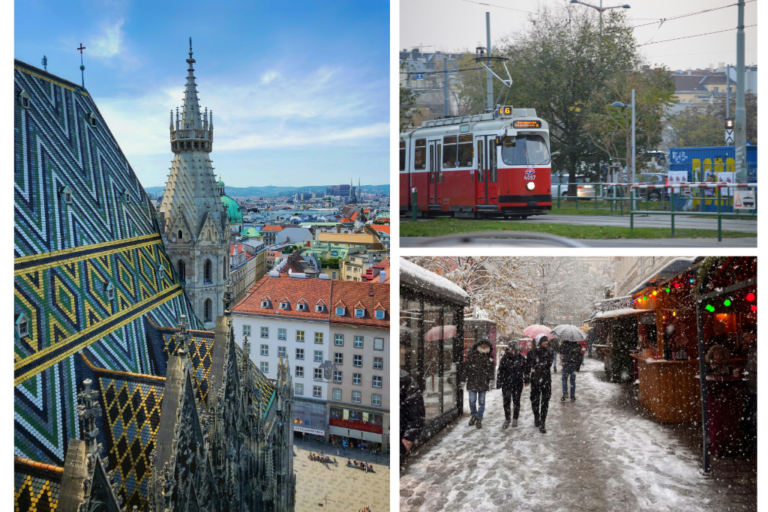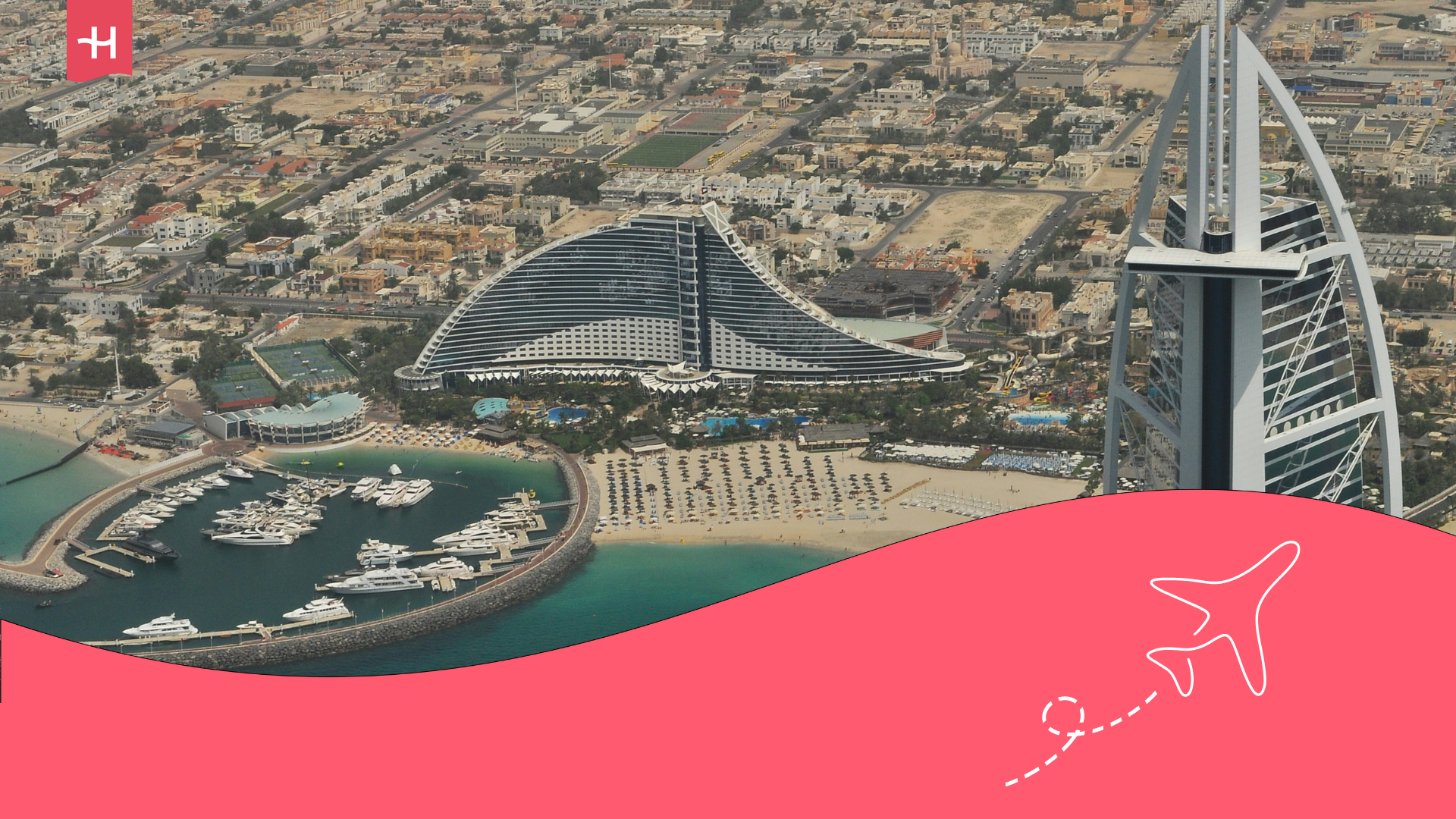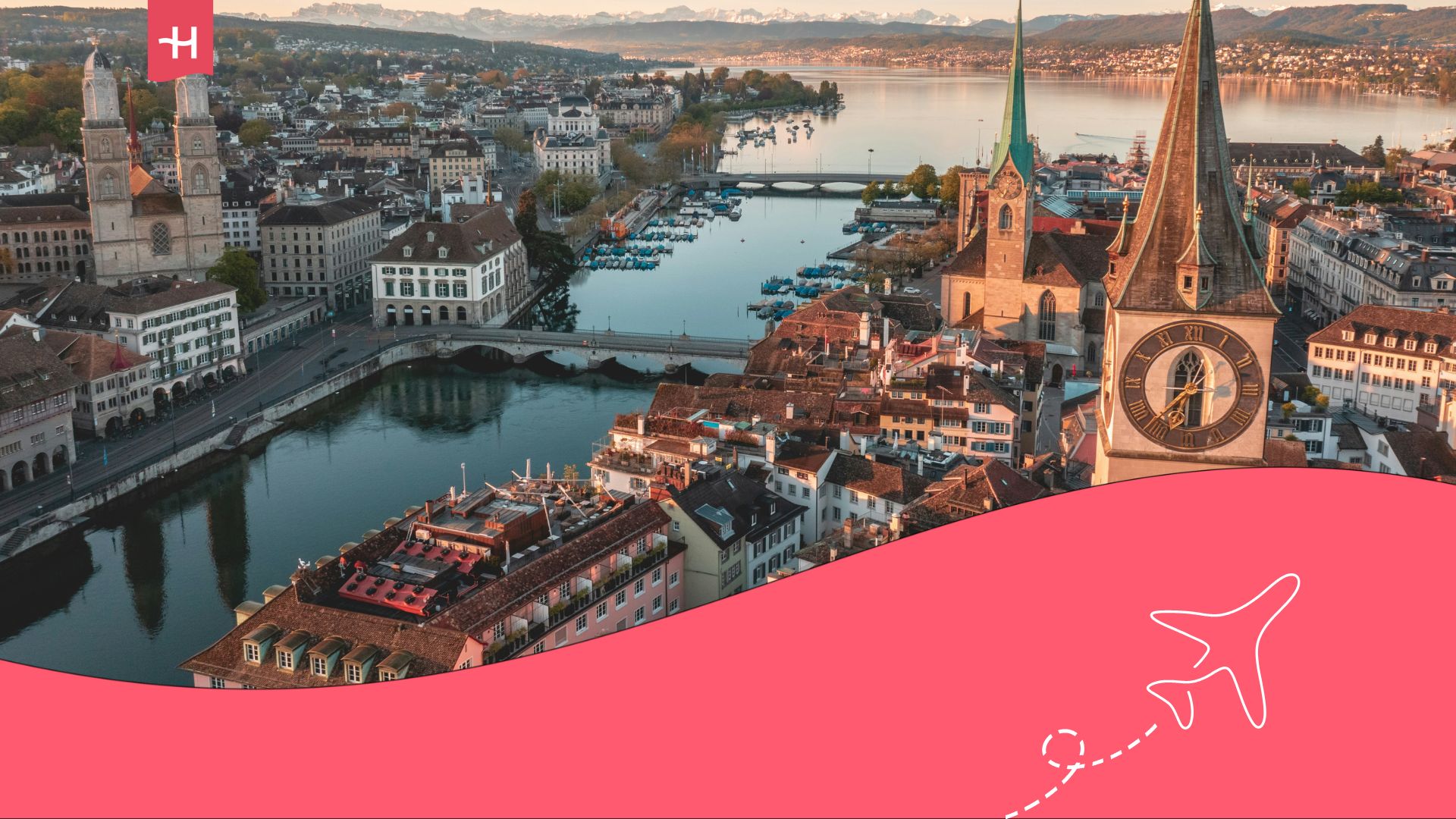How to work in Vienna: Opportunities and requirements
Discover how to work in Vienna in 2025: requirements, salaries, cost of living, and where to find the best job opportunities.
Vienna is more than just the capital of Austria; it’s a city that beautifully combines quality of life, culture, and opportunity. With a strong economy, many international organizations and global companies, and a rapidly growing tech sector, Vienna is an excellent place for expats who want to build their careers in an international environment.
Understanding which sectors have the highest demand, what the legal requirements are, and the best ways to find a job in Vienna is the first step toward making the move and taking full advantage of everything the city has to offer foreign professionals.
Advantages of working in Vienna
Working in Vienna means more than just joining a stable and well-regulated job market; it also means living in one of the world’s most livable cities. Austria’s capital offers a rare mix of safety, economic stability, and a vibrant multicultural atmosphere that draws thousands of professionals from around the globe each year.
With competitive salaries, excellent public services, and a healthy work-life balance, Vienna stands out as an ideal destination for professionals looking to grow their careers in a safe and rewarding environment.
- High quality of life: Vienna has repeatedly been ranked among the cities with the highest quality of life in the world. It offers efficient public services, plenty of green spaces, excellent public transport, and a vibrant cultural scene.
- Safety and stability: Austria is among the safest countries in Europe, and Vienna reflects that reputation. With low crime rates and strong political stability, the city offers a secure and welcoming environment for both work and family life.
- Strong job market: The capital is home to numerous multinational companies, financial institutions, and international organizations such as the United Nations, creating a wide range of job opportunities in highly skilled sectors.
- Competitive income: Although taxes are relatively high, salaries in Vienna tend to be higher than in many other European countries. Qualified professionals can earn enough to enjoy a very comfortable standard of living.
- Diverse international community: Vienna is home to a large community of expats and diplomats, making it easier for newcomers to settle in and contributing to a rich, multicultural environment.
- Economic stability: Austria boasts one of Europe’s strongest economies, with low unemployment and a well-regulated labor system that safeguards workers’ rights.
- High-quality healthcare system: Employees have access to the public healthcare system, which is modern, efficient, and recognized as one of the best in Europe.
- Efficient and affordable public transportation: Subways, trams, and buses connect the entire city quickly and at affordable prices.
- Work-life balance: Austrian culture places a high value on free time. Workdays are well-structured, and employees typically enjoy at least five weeks of vacation each year.
- Cultural and educational environment: Vienna is a city rich in history and culture, known for its operas, museums, and concerts. It also stands out for its universities and high-quality educational programs.
Requirements for working in Vienna
Before looking for a job in Vienna, it’s essential to understand the requirements for legally working in Austria’s capital. Being aware of these rules from the start makes the process smoother and increases the chances of securing a stable position in this international city.
- Residence and work permit. Citizens of the European Union (EU) or the European Economic Area (EEA) can live and work in Vienna without a visa. They only need to register with the city if they plan to stay longer than three months.
- Citizens from non-EU/EEA countries need a work and residence permit to live and work in Austria. This permit is granted if they meet certain requirements, such as relevant qualifications, work experience, and a confirmed job offer.
- There are three types of visas. Red-White-Red Card: for skilled workers, shortage occupations, and entrepreneurs; Temporary work visa: for seasonal or short-term jobs; EU Blue Card: for highly qualified professionals with a job offer in Austria; Self-employment permit: for those planning to work as freelancers or start their own business.
- Confirmed job offer. In most cases, you need a job offer from an Austrian company before applying for a work permit. The employer is usually involved in the permit application process.
- Registration in the local system. Once in Vienna, you must register your address through the Meldezettel, a document required to access basic services, healthcare, and official procedures.
- Language proficiency. German is the official language, and most skilled jobs require at least an intermediate level (B1-B2).
- In international sectors such as organizations, multinational companies, iGaming, IT, and research, English is generally enough, though learning German makes it much easier to settle in both professionally and socially.
- Recognition of degrees and qualifications. For regulated professions like medicine, nursing, law, or teaching, foreign qualifications must be recognized or accredited in Austria before you can practice.
- Medical and social insurance. All employees in Vienna are required to be registered in the Austrian social security system, which provides healthcare, pensions, and labor protections.
- Compliance with local labor laws. Working conditions in Austria, including minimum wages set by collective agreements, vacation time, and maximum working hours, are regulated and must be respected by both employers and employees.

Tips for starting work in Vienna
Starting a new job in Vienna can be a great experience, but it also brings everyday challenges. From securing housing to adjusting to the local work culture and lifestyle, having some practical guidance can make the transition easier.
Here are some practical tips to help you settle in quicker, get organized in Vienna, and make the most of your work experience as an expat.
- Don’t stay offline when you arrive: Having internet from day one makes everything easier, from finding a place to live to handling official paperwork without stress. With Holafly’s Vienna eSIM, you can stay connected instantly and hassle-free during your first months in Austria.
- Open a local bank account: Most employers deposit salaries into Austrian bank accounts. Having one also makes it easier to manage rent and everyday bills.
- Look for accommodation in advance: Vienna’s housing market is competitive. It can be helpful to start with a temporary rental or a coliving space while you look for a permanent home.
- Familiarize yourself with public transportation: Vienna has one of the most efficient public transport systems in Europe. A monthly pass is the most convenient and cost-effective way to get around.
- Find out about taxes and deductions: Taxes in Austria are generally easy to navigate, but they tend to be relatively high. Knowing your deductions beforehand can help you avoid unexpected impacts on your net income.
- Take advantage of the international community: Vienna is home to thousands of expats. Joining networking groups or international associations can make it easier to build both social and professional connections.
- Adapt to the local pace: Austrians place a high value on punctuality, organization, and following rules. Adapting to this work culture will make it easier to succeed in your job.
Types of jobs in Vienna for foreigners
Vienna offers many opportunities for people coming from abroad. The list below highlights the most common jobs for expats and how you can make the most of them when settling in the Austrian capital.
- Information technology (IT): Vienna is one of Central Europe’s main tech hubs. There is strong demand for software developers, system engineers, cybersecurity experts, data analysts, and AI specialists. In many international companies, English is often enough to work effectively.
- Engineering and construction: There is a demand for civil, mechanical, and electrical engineers, as well as architects, to work on infrastructure, renewable energy, and urban development projects in Austria.
- Health and medicine: Doctors, nurses, and physiotherapists are in demand. Strong German skills are essential, as the work involves direct patient care and handling healthcare procedures.
- Tourism and hospitality: Vienna attracts millions of visitors each year, creating opportunities for receptionists, tour guides, waitstaff, chefs, and hotel employees. English is highly valued, and even a basic knowledge of German is a plus.
- Finance and banking: As one of Europe’s leading financial centers, the city offers opportunities in accounting, auditing, international banking, insurance, and consulting. Many multinational firms employ foreign professionals, particularly those with strong English skills.
- Education and research: There are opportunities for language teachers (especially in English and Spanish), as well as positions available in universities, research centers, and laboratories.
- Logistics and international trade: Vienna’s strategic location in Central Europe makes it a key hub for transportation, trade, supply chain management, and logistics.
- Startups and the digital economy: The city’s expanding startup scene offers plenty of opportunities in marketing, sales, project management, and product development, especially for international talent.
- International organizations: Vienna hosts the headquarters of the United Nations and the IAEA. There is strong demand for administrators, translators, analysts, and technical specialists, and English alone is often sufficient in this setting.
- Services and unskilled jobs: There are also opportunities in cleaning, maintenance, construction, and manual trades. These jobs can be a good starting point while you’re getting settled.
The most in-demand jobs in Vienna for foreigners
Planning to move to Vienna for work? It’s worth knowing which jobs are most in demand. Here’s a look at the roles and professions where foreigners have the best chances in Austria’s capital.

- Technology (IT) specialists: Software developers, data engineers, and cybersecurity experts are in high demand. Vienna has evolved into a thriving tech hub, where many global companies are eager to hire international talent.
- Doctors and healthcare professionals: The aging population is fueling high demand for doctors, nurses, and physiotherapists.
- Engineers: Civil, electrical, and mechanical engineers, as well as specialists in renewable energy, have strong opportunities thanks to Austria’s infrastructure and sustainability projects.
- Finance and accounting professionals: As a major financial hub, Vienna provides solid opportunities for auditors, accountants, consultants, and financial analysts, particularly with international firms where English is the working language.
- Tourism and hospitality experts: As one of the most visited capitals in Europe, Vienna needs chefs, receptionists, waiters, and tour guides.
- Teachers and researchers: There are opportunities for language teachers (particularly in English and Spanish) as well as for researchers at universities and specialized centers.
- Logistics and international trade professionals: Vienna’s strategic location makes supply chain managers, transport experts, and international trade professionals highly sought after by global firms.
Salaries and cost of living in Vienna
While Vienna is a pricey city, salaries usually balance out the cost of living. A single person typically spends between $2,350 and $2,675 per month, whereas a family may exceed $4,800, with rent as the biggest expense. The average net salary is around $2,460–2,780, but with experience and strong language skills, you can earn considerably more.
Generally, a low income just covers the essentials, a moderate income lets you live comfortably and save a little, and a high income offers a very comfortable life, even with a family. So, although Vienna can be expensive, salaries typically keep pace with living costs, making it possible to enjoy a good quality of life.
Important: If you are a frequent traveler and want to stay connected without worrying about expensive roaming or looking for a new SIM at every destination, Holafly’s subscription plans are for you. With a single eSIM, enjoy internet in more than 170 countries for a fixed price and no surprises on your bill. Travel without limits and connect easily and securely! 🚀🌍

Where can I find job opportunities in Vienna?
If you’re looking to work in Vienna, the key is knowing where to search. Opportunities are available through online platforms with thousands of updated job listings, as well as specialized recruitment agencies that link professionals with local and international employers.
- Austrian Public Employment Service (AMS): This is Austria’s official labor market agency, offering numerous free services such as career advice, job databases, training programs, and hiring information. It also has a search tool called Alle Jobs, which brings together many of the current job openings.
- Online platforms: Websites such as Find a Job in Austria, Virtual Vienna Jobboard, and gigexchange feature jobs in English, international positions, and contract work across Austria.
- Recruitment agencies: If you’re a specialist or senior professional, key recruitment agencies in Vienna include Iventa Executive Search for executive roles, Mondial Recruiting for technical and automotive positions with relocation support, and Trenkwalder Group for staffing and temporary employment.
- Support organizations: AJNA links international professionals with Austrian employers while providing legal help and support for integration. Work in Austria offers practical guides on visas, permits, and life in the country.
- Events, job fairs, personal networks: Job fairs organized by the AMS or chambers of commerce are good starting points. You can also connect with expat communities, professional meetups (for example in IT), social media groups, LinkedIn, and more. Check the career pages of large companies you’re interested in, even if they don’t currently have visible job openings.
Frequently asked questions about working in Vienna
Yes, Vienna offers many job opportunities, although access depends on the sector, your level of German, and the type of visa or work permit you hold.
Profiles in technology, health, engineering, tourism, and services are particularly sought after, although there are also opportunities in administrative and research areas.
For the most part, yes, especially in customer service and administrative positions. In multinationals, tech, and other technical fields, English alone is often enough.
AMS goes beyond job listings by hosting job fairs, offering training programs, and providing support to help foreigners integrate into the Austrian job market.
Mainly in hospitality, logistics, cleaning, construction, or temporary jobs, although these tend to be in the lowest salary range.





 Language
Language 


















 No results found
No results found








